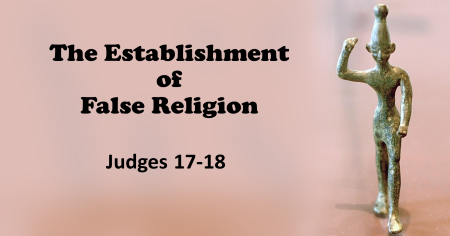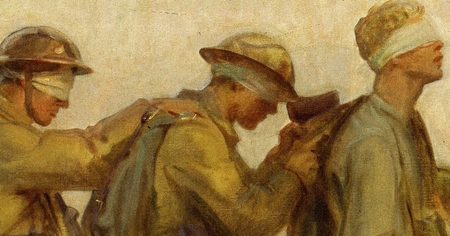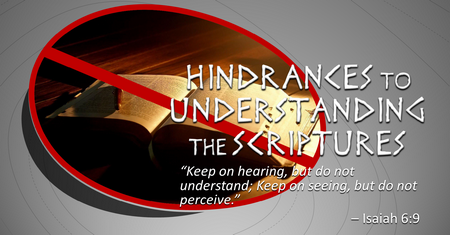Category: False Teachers
Subject: False Teachers
Sermon: Philosophy
Paul warned against the deceitful words of philosophy that come from misguided men. Our lesson examines four different philosophers, contrasting them with the truths found in God’s word.
Beware of Dogs!
“Beware of dogs, beware of evil workers, beware of the mutilation!” (Philippians 3:2).
Paul here refers to the Judaizing teachers, who sought to “spy out our liberty which we have in Christ Jesus, that they might bring us into bondage” (cf. Galatians 2:4).
Any departure from the gospel of Christ brings the condemnation of God upon them (cf. Galatians 1:9), and endangers the souls of those who might be influenced by them.
Paul’s words were strong. While our society holds a soft place in its collective heart for domesticated canines, the term “dog” meant something far different in the first century. Most were vicious and untrained, roaming streets, and feeding on garbage. Consider the words of the prophet Ahijah, “The dogs shall eat whoever belongs to Jeroboam and dies in the city, and the birds of the air shall eat whoever dies in the field; for the Lord has spoken!” (1 Kings 14:11).
As such, when the term is used to describe a person, it was always a term of strong derision, just as Paul used it here, (cf. 2 Samuel 16:9 for another example of this).
How do we feel about those who teach error? Do we note the danger they bring, and denounce without equivocation their efforts to bewitch the vulnerable? Or, do we tolerate or accept them as they spread their lies?
We must stand with Paul, denounce the false teacher, reject his error, keep the church pure!
Click below to…
The Patternists: Is There a Difference Between Gospel and Doctrine?
Back in the 1970’s, brethren were troubled by the teaching of men, the most famous being Carl Ketcherside, who taught a bifurcation of the gospel of Christ and the doctrine of the church. This has long been a popular view held by many in the denominations. If you have ever heard someone say that unity in doctrine is not important so long as we all accept Jesus as our Savior, you have heard this position taken.
Some say, “You have to believe in the resurrected Jesus, but you don’t have to agree on whether baptism is for believers or it can include infants too.” Or, “You can differ on whether to take the Lord’s Supper every Sunday or twice a year.” Or, “God doesn’t care if you use an mechanical instrument in musical worship or not!”
Continue reading “The Patternists: Is There a Difference Between Gospel and Doctrine?” →
The Patternists: Entrusted with the Gospel

Paul wrote to the Thessalonians, “But as we have been approved by God to be entrusted with the gospel, even so we speak, not as pleasing men, but God who tests our hearts” (1 Thessalonians 2:4). He contrasted the “gospel of God” (vs. 2) with error, uncleanness, deceit, flattering words, and a cloak of covetousness. He wrote, “So, affectionately longing for you, we were well pleased to impart to you not only the gospel of God, but also our own lives, because you had become dear to us” (vs. 8).
This careful treatment of the gospel of God is described by the apostle as devout, just and blameless behavior (cf. vs. 10). It must be understood that his work was the work of an apostle, having been given the responsibility to witness Jesus to the world. Paul had been given the gift of inspiration, joining others in writing the scripture which constitutes the new covenant of Christ (cf. 2 Peter 3:16). Peter noted the nature of this work, writing, “knowing this first, that no prophecy of Scripture is of any private interpretation, for prophecy never came by the will of man, but holy men of God spoke as they were moved by the Holy Spirit” (2 Peter 1:20-21). This work was also contrasted with false apostles. Notice Paul’s words about them:
Continue reading “The Patternists: Entrusted with the Gospel” →
Persuasive Words
In Colossians 2, the apostle Paul expressed his desire for the church in Colosse as well as Laodicea, that they might have an understanding of the mystery of God. His reason for this is simple:
“Now this I say lest anyone should deceive you with persuasive words” (Colossians 2:4).
The nature of religious and philosophical error is that it can be persuasive. I once heard a gospel preacher talk about a particular false teacher who had some influence in the 1970’s. Regarding this errorist, and his effect on young college students, the preacher said that if you gave him 20 minutes he could convince those vulnerable students that white was black and black was white.
This is how error works. It exploits (2 Peter 2:3). It entices (2 Peter 2:14). It consists of “great swelling words of emptiness” (2 Peter 2:18).
False teachers “allure” (2 Peter 18). They serve “only themselves” (Jude 12). They “mouth great swelling words, flattering people to gain advantage” (Jude 16).
Edification is the only protection we have against such evil influences. We must be “building [our]selves up on [our] most holy faith” (Jude 20). Using the language of our text, “attaining to all riches of the full assurance of understanding, to the knowledge of the mystery of God, both of the Father and of Christ, in who are hidden all the treasures of wisdom and knowledge” (Colossians 2:2-3).
May we all work at having such an understanding of the truth.
Click below to…
Sermon: Hindrances to Understanding the Scriptures
A discussion (borrowed from Jeremiah Cox’s sermon of the same name) of men’s self-imposed impediments to understanding God’s word.
Why Can’t You See?
Have you even wondered why, when you share the truth with those who are caught in denominational error, that they just can’t see it? Some will claim that the truth is not clear enough to be understood alike, but that’s not it. Paul told the Corinthians what the problem is in these cases:
“But even if our gospel is veiled, it is veiled to those who are perishing, whose minds the god of this age has blinded, who do not believe, lest the light of the gospel of the glory of Christ, who is the image of God, should shine on them” (2 Corinthians 4:3-4).
Whether it be the one taken in religious error, the one who no longer retains God in his knowledge (cf. Romans 1:28-32), or the immoral, they don’t understand because they have been blinded by the influences of this world.
It is not surprising that this would happen. The devil is active, and men are surprisingly willing to believe what they want rather than what they should. All men are susceptible. You and I are susceptible.
Do you have a blindspot? Is there some truth from God’s word that you resist because you have carnal biases and preferences? You don’t? Are you sure?! Am I?!
“Blessed are those who keep His testimonies,
Who seek Him with the whole heart!
They also do no iniquity;
They walk in His ways.”(Psalm 119:2-3)
Click below to…
“You will know them by their fruits”
“Beware of false prophets, who come to you in sheep’s clothing, but inwardly they are ravenous wolves. You will know them by their fruits…” (Matthew 7:15-16).
Jesus affirmed a truth regarding false prophets (and false teachers) that many Christians have forgotten. It is not all about their motivation or heart, it is about their fruits! When people say, “He is a good man” despite the fact that he preaches a distorted gospel, the correct response is “A good tree cannot bear bad fruit, nor can a bad tree bear good fruit” (18).
The Patternists: Destructive Heresies

I came across an interesting discussion on Facebook the other day. Someone had posted an article that was critical of Joel Osteen, the charismatic TV preacher from Houston, calling him a false teacher.
In the comments there were efforts on the part of several to defend the man and his teaching. These efforts ranged from characterizing his lack of scripture in preaching as “paraphrasing to make it more understandable”, to decrying those critical because they were “judging him when they have never met him”, to referencing his 20,000 strong Sunday services and prolific TV, radio and podcast messages as evidence of His being anointed by God and blessed by Him.
We are living in a time where our culture has greatly impacted our view of God, grace and judgment. These apologists were not parroting godly principles, but an attitude of tolerance for all that has its genesis in popular culture rather than the Bible.
“But for you it is safe”

“…For me to write the same things to you is not tedious, but for you it is safe” (Philippians 3:1).
Paul repeated a message in his letter to the Philippians, revisiting a theme that was common for him to discuss. “Beware of dogs, beware of evil workers, beware of the mutilation…” (vs. 2).
Have you ever thought about why a preacher might repeat the same messages over and over and over? Have you thought that surely he must be tired of covering the same themes and subjects? I fear that some men do burn out. After all, I shouldn’t have to tell the brethren over and over again. Once or twice should suffice!
But, Paul said “to write the same things to you is not tedious.” He was fine with the repetition. The warnings, (“beware”), are found in every letter. Again and again and again. Yet he did not wane in his diligent efforts to warn them about false teachers, doctrinal error, and evil men. He told the Philippians why — ”but for you it is safe.”
The Holy Spirit knows the danger of error; how the false teacher destroys faith; how the devil is ever on the prowl. Some tire of preaching the warning, and others tire of listening to it. They impatiently say “I know, I know!” when the warning is offered. Yet, the importance of the constant “beware” remains. It is to make you safe. It is important. When the warning comes, please listen!
Click below to…
Sermon: The Establishment of False Religion

Judges chapters 17 and 18 record a man of Ephraim called Micah, who established his own religion by fashioning and idol, and hiring a Levite to be his priest. The record of Micah supplies some surprising parallels to the establishment of false religion in every age, including our own.
Sermon: The Clarity of Revelation

The lesson answers two questions using the scriptures:
-
Is scripture sufficiently clear to be understood by man?
-
Is our understanding relative? Does a lack of understanding on our part excuse false teaching or sinful action?
We must defend the truth of God’s word against those who teach error. False doctrine cannot be tolerated among the people of God.
Giants in the Land

The children of Israel failed to believe in the power of God to bring them victory against the giants who inhabited the land they had been promised.
We need to trust in God to give us the victory against the spiritual “giants” that oppose us.
Sermon: “And if the blind lead the blind…”

Sermon by Dennis Scroggins
Truth can be understood, and must be defended, heeded, and obeyed. Too often men look to the unrighteous or ignorant for advice, rather than those who are familiar with and wise in the ways of God.











